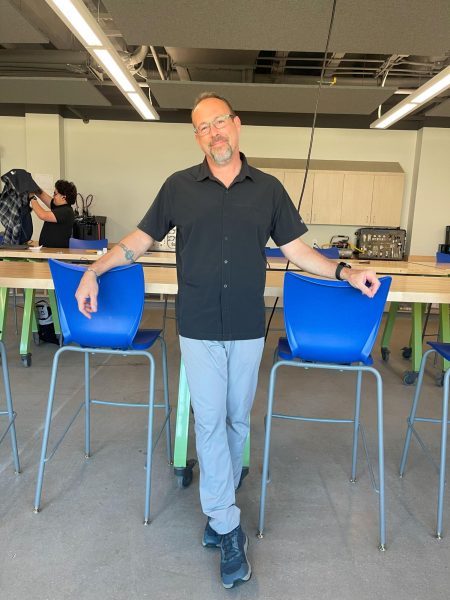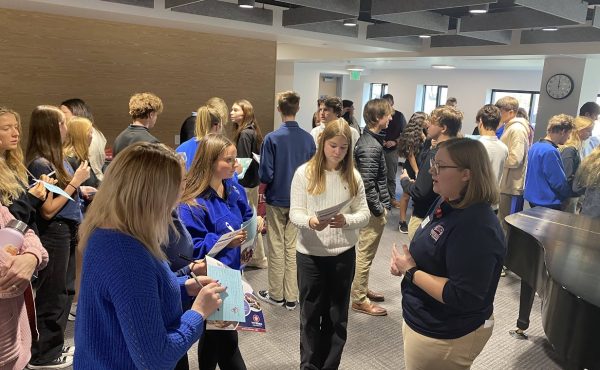Dealing with Technology as professor and parent
Father and daughter out enjoying nature.
Have you ever been waiting for an event to start, such as a class or lecture, and it’s delayed because of a technological issue? Those awkward few minutes of the teacher running around trying to get their session started.
Much like the rest of the world, Professor of Communication at Saint Mary’s University and Cotter parent, Dean Beckman, had to adapt to new methods of teaching.
“The university gave us two days to completely change the delivery of our classes, which of course none of us had factored in when we made our syllabi in January.”
As activities shut down, some of his students were sent home, while others stayed hunkered down on campus. Beckman had to figure out how to best deliver his classes using technologies such as Zoom, pre-recorded lectures, digital discussion boards, and other video recording resources.
Fortunately, Saint Mary’s has an entire IT department to aid teachers in technological issues; Beckman says there have only been a few times he has had to use them.
“Since I teach in the communications field, I need to stay up-to-date with technology… my limitations lay more within the hardware/technical side than the software side.”
When it comes to his children and technology, his main concern is his children not developing a love for in-person social friendships, participating in outdoor activities, and reading.
“Electronic stimulation is so addictive and it literally changes the way kids’ brains develop. Electronic technology is fine in moderation, but the pandemic brought things to an excess that is not necessarily good,” Beckman said.
Beckman’s youngest child, Cotter seventh-grader, Erica, experienced several frustrations with the shift to online learning.
“It became hard to focus on class and my grades began to slip. For me, online school is easier said than done,” Erica said.
She says that the adults around her have gotten better with technology over the course of the pandemic, rarely ever needing help anymore.
“[Now,] they more clearly understand how to use common interfaces and new technology systems much faster now… Some advice I would give to adults struggling with online communication is to always ask for help.”
Erica believes that getting advice from children with a greater knowledge of technology will often make solving issues faster and easier.
Statistically, most adults allow their ego to get in the way of asking for help from those younger than them. Beckman says he hasn’t had to receive help or advice from his kids very many times, but they’re always willing to lend a helping hand.







